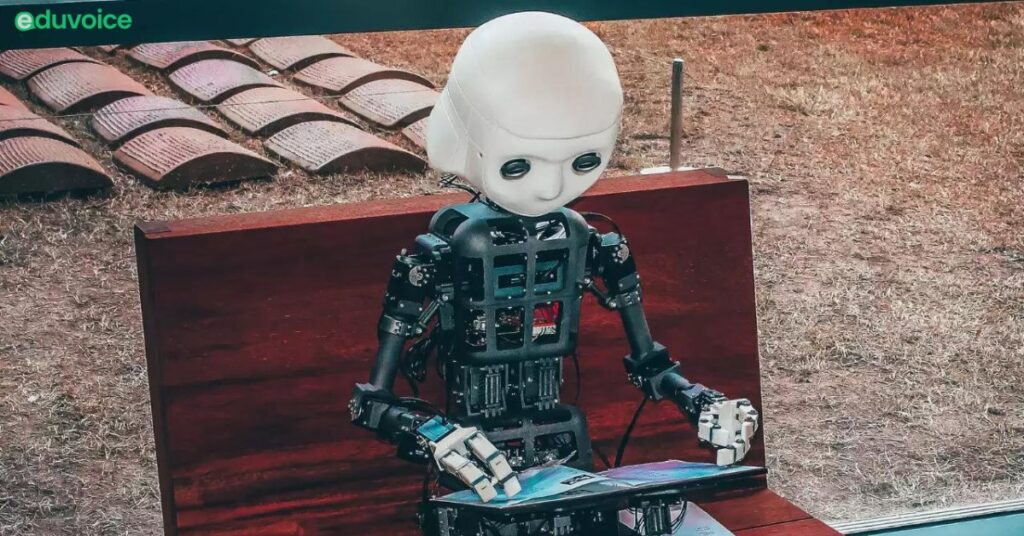We sat down with Sharad Mehra, CEO (APAC), of Global University Systems (GUS) to talk about the integration of Metaverse and Artificial Intelligence.
How Do You See The Metaverse Changing The Way We Teach And Learn In The Future?
Metaverse is an expansive and borderless world with endless teaching, learning, and engagement possibilities that will extend beyond conventional classrooms and other limitations. The statistics drive home this point: With virtual learning rising steadily in India, the number of online learners is expected to amount to 244 million by 2027. The user penetration which will be 10.3% in 2023 is expected to hit 16.6% by 2027. Metaverse, which is a widely growing sector and is expected to reach around $5 trillion by 2030, will play a huge role in digital learning too
Besides scaling back on spending on physical infrastructure and other expenses, the metaverse is a more collaborative, immersive, and experiential platform that will facilitate more accessibility, usage of smarter learning devices, & software, smart educational content, and personalised learning. Therefore, we can also expect a change in pedagogies and teaching methodologies wherein the real challenge is to keep the learners interested and curious while emphasizing creativity and innovation. More technical agility and skills, thinking on the feet, and constant upskilling will be some critical mainstays for faculty in the meta-universe. I also feel that we may see fewer physical campuses and more virtual spaces that double up as universities and HE institutions.
Do You Think That Metaverse Or Other Technologies Like AR, And VR Can Actually Take Over The Traditional Practices When It Comes To Education? How Will It Affect Traditional Classroom Settings And The Role Of Teachers?
The building blocks of the metaverse ecosystem- AR, VR – are actually critical stepping stones to how education will be imparted and imbibed in the future. We’re already witnessing transformative shifts in universities and higher education institutions around the world with education becoming more interactive, and hands-on and encouraging comprehensive learning by simplifying concepts, on both ends. If you look at the figures, The Global Online Education Market is valued at USD 198.2 Billion in 2022. It is projected to reach USD 602 billion by 2030 at a CAGR of 17.2% over the forecast period 2023-2030.
But more than stats, I think we need to be open to learning anytime anywhere and technologies like metaverse, AR, and VR assist and augment that requirement. The age of conventional classroom learning is over, and the future is about ‘techpertise’—a combination of technology, domain, and human skills—like empathy, creativity, agility, communication, and teamwork– where constant upgrades are a necessity. This is applicable to both students and faculty. For teachers, the role of technology is more assistive and impactful, and it cannot really replace human experience or learning. Hence upskilling and familiarization with these technologies are a must. Therefore, while it’s important to embrace digital changes it’s equally important to remember that despite unlimited possibilities technology will never replace humans, rather it will assist humans in a more seamless, comprehensive, and deeper experience.
How Is It Actually Going To Benefit Learners And Students And What Kind Of Job Opportunities Will It Create For Them?
In my opinion collaboration, innovation, creativity, and channelling human talent will reap great benefits for learners and students. Education will be more democratized, accessible, customised, and borderless creating more room for talent and skills across the world.
The future of jobs in the metaverse and other related technologies will be innovative, tech, and human-driven but most interestingly, many of these roles or job profiles don’t really exist today. While popular choices like Blockchain Technology, NFTs, VR/AR/MR and XR, Crypto, Events in Metaverse, Decentralised Finance, Investing in Metaverse, Meta MBA, Fashion, and Design will continue their innings we can expect all domains to congregate under one umbrella of technology and expect multiple careers.
What Could Be The Popular Courses Or Streams That Will Gain Prominence In The Near Future? Can You Share Any Metaverse-Based Educational Programs Or Initiatives By GGS?
Popular courses have been mentioned in the response above, but it’s also important to remember that more courses will emerge as the metaverse continues to develop rapidly.
At Global University Systems and its academic partner institutes like UPES and Pearl Academy, our aim is to have our own Meta presence through a Metaversity and virtual campuses, creating digital twins of all GUS Universities and setting up immersive classrooms and labs in all campuses. We are working on designing courses in Metaverse such as Meta specialisations, delivery in Metaverse, Meta MBA, Fashion, Design, and Media. In order to equip students with the right knowledge we have a signature introductory-level course known as Meta 101.
How Do You Think The Growth Of The Metaverse Will Impact The Education Industry As A Whole, And What Opportunities And Challenges Does It Present For Educators And Students?
Metaverse is still developing and it’s difficult to predict its impact on the education industry at this stage. However, there’s no doubt that it’s creating a future where virtual and physical worlds collide to create endless possibilities & unimaginable transformations. The challenges would be around the ability to create content, mindset, and regulatory compliance. The learners will be a step ahead of the institutions and faculty and this scenario is not going to go away, anytime soon. With technologies like ChatGPT taking the world over, questions about plagiarism, authenticity, originality, and human talent also need deep introspection as these underscore the critical need to have some checks and balances in place.
For More Such Articles, News Update, Events, and Many More Click Here






